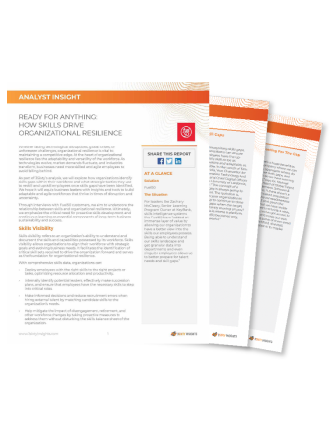In 2001, Sherron Watkins, a vice president at Enron, faced a critical decision. After discovering massive accounting irregularities that masked billions in losses, she faced one of the most significant ethical dilemmas of her career: whether to stay quiet to protect her career or speak up about the unethical practices.
She chose to write a detailed memo to CEO Kenneth Lay, warning that the company might “implode in a wave of accounting scandals.” Though her warnings were initially ignored, her ethical stance ultimately helped expose one of the largest corporate frauds in history and led to fundamental changes in corporate governance.
This pivotal moment illustrates why ethical leadership isn’t just about making the right choices when everyone’s watching – it’s about maintaining moral principles even when facing significant personal risk or pressure to look the other way. Whether you’re leading a Fortune 500 company or managing a small team, ethical leadership forms the foundation of trust, respect, and sustainable success in any organization.
But what exactly constitutes ethical leadership? This article will cover what it is, how to implement it, and share a few examples of ethical leadership.
What is ethical leadership and why is it important?
Ethical leadership is a style of leadership that prioritizes moral principles and values in decision-making and behavior. At its core, ethical leadership means directing individuals or organizations in ways that respect moral values, transparency, and fairness.
Ethical leaders encourage their team members to adopt ethical behaviors, fostering a workplace culture centered on transparency, collaboration, and inclusion. It’s about creating a culture where doing the right thing isn’t just encouraged – it’s expected and modeled from the top down.
It involves demonstrating appropriate conduct, both inside and outside of the workplace, and setting a positive example for others to follow.
Ethical leaders inspire their teams, create a culture of respect, and foster a sense of psychological safety. The importance of ethical leadership cannot be overstated, as it has a direct impact on the well-being of employees, customers, and the organization as a whole. Ethical leaders are the cornerstone of a thriving workplace culture, ensuring that ethical considerations are at the forefront of every decision and action.
What foundational elements do you need to instill great ethical leadership skills within your organization?
Ethical leaders ground themselves in leadership ethics and moral principles that favor right over wrong, fairness over inequity, and integrity over deceit. Understanding the foundational elements of ethical leadership – as outlined by Forbesand industry professionals – enables business leaders and HR teams to develop and prioritize these traits within their organizations. The development of ethical leadership skills through structured programs, such as the two-day Ethical Leadership program offered by Harvard DCE, is crucial in equipping leaders to make ethical decisions and navigate challenging organizational dilemmas.
- Fairness: Ethical leaders are committed to DEIB initiatives and strive to ensure all employees are treated equally and fairly, regardless of race, gender, religion, or socio-economic status.
- Trust and Communication: Ethical leaders prioritize fostering a culture of trust and open communication with and between employees. They encourage transparency and openness to build stronger relationships.
- Respect: Ethical leaders are mindful of all stakeholders, ensuring those around them are heard and respected. They value the voices of others and demonstrate respect in every interaction.
- Humanity: Ethical leaders prioritize people over profits to ensure everyone is treated fairly. They prioritize employee well-being and show genuine care and interest to those they lead.
- Integrity: Ethical leaders show true integrity by being honest, transparent, reliable, and authentic. They consider the needs of all stakeholders involved and demonstrate transparency and accountability in every decision they make.
An ethical leader leads by example, demonstrating honesty, fairness, and compassion in all interactions. – Martin Luther King Jr.
Why is ethical leadership so important for organizations today?
Ethical leadership is valued for its positive impact on organizational success, employee engagement, well-being, and social responsibility. Organizations that practice ethical leadership experience higher productivity and lower turnover rates, as ethical leaders foster a positive workplace culture.
Placing individuals who exemplify ethical conduct into management and leadership positions is crucial for fostering integrity, fairness, and accountability in the workplace. Ethical leaders are known to create a culture of trust, transparency, and ethical decision-making within organizations.
Encouraging and cultivating ethical leaders has significant benefits, including:
A positive workplace culture
Ethical leaders inspire and motivate others to follow good ethical behavior. Mutual respect between leaders and employees is essential for fostering healthy workplace relationships and open communication. As leaders set a positive example, others within the organization will follow, acting with integrity and openness.
Increased sense of belonging
When company values are grounded in ethics, and are aligned with employee values, employees feel more connected to the organization’s mission and values. According to HBR, high belonging is linked to a whopping 56% increase in job performance, a 50% drop in turnover risk, and a 75% reduction in sick days.
Improved brand image
Maintaining moral and ethical principles throughout the organization can dramatically improve its brand image. This makes organizations more appealing to work for, to do business with, and to buy from.
Better morale
A strong emphasis on values and ethics fosters a positive work environment where employees feel respected and motivated to do their best.
Better retention
Ethical leaders create a human-centric culture that prioritizes trust, fairness, and community. Employees thrive in these environments as they feel more supported and valued, leading to lower turnover, higher productivity, and loyalty.
How to implement ethical leadership within your company?
We’ve rounded up the most effective ways to adopt ethical leadership by placing individuals into leadership positions who exemplify ethical conduct:
Encourage ethical leaders to build strong relationships
According to Forbes, when leaders have strong and genuine relationships with their team members, they are more likely to have more honest and open communication. Regular catch-ups and meaningful conversations creates an environment where employees are comfortable voicing their opinions, concerns, and career goals, thus enabling leaders to better support their people.
Create an ethical organizational culture of continuous improvement
Ethical leaders are constantly striving to improve and refine strategies to ensure efficiency and productivity for their teams and the business as a whole. This sentiment should be encouraged to the wider business through periodic reviews and evaluations of processes and strategies. This cultivates a culture where employees are always willing to improve and find better ways to operate.
Be willing to evolve and adapt to change with ethical behavior
Ethical leaders are ready to evolve and adapt to changes within the workplace and the market. They help make transitions go much smoother by listening to their employees, addressing concerns, and making decisions that balance both employee and organizational needs.
Include Soft Skills & DEIB Skills and Capabilities
According to research by Fuel50, considering DEIB capabilities and specialist skills can help promote a great employee experience. Incorporating these skills can go a long way in fostering a culture where people feel a sense of belonging, want to be affiliated with the organization, and actively contribute to the organization’s performance. Below are some examples:
Specialist Skills:
- D&I Strategy and Policy
- Diversity Recruiting
- Knowledge of Discrimination and Privilege
- Social Inclusion Initiatives
Capabilities:
- Attitudinal Awareness
- Cultural Competence
- Inclusive Leadership
- Team Well-being
- Valuing Diversity
Soft Skills:
- Critical Thinking
- Interpersonal communication
- Collaboration
- Conflict resolution
- Emotional intelligence
How to overcome implementation challenges of ethical leadership?
Despite the importance of ethical leadership, there are many challenges that can arise. These include:
- Lack of resources: Ethical leaders may face challenges in securing the resources they need to implement ethical practices. This can hinder their ability to make ethical decisions and take ethical actions.
- Conflicting priorities: Ethical leaders may face conflicting priorities, such as the need to balance financial goals with social responsibility. This can create tension and make it difficult to uphold ethical standards.
- Resistance to change: Ethical leaders may face resistance to change from stakeholders who are accustomed to traditional ways of doing things. This can make it challenging to implement new ethical practices and policies.
Solutions to these obstacles include:
- Providing training and development opportunities: Ethical leaders can provide training and development opportunities to help stakeholders understand the importance of ethical leadership. This can build support and buy-in for ethical practices.
- Setting clear priorities: Ethical leaders can set clear priorities and communicate them effectively to stakeholders. This can help align everyone around common goals and ensure that ethical considerations are prioritized.
- Engaging stakeholders: Ethical leaders can engage stakeholders in the decision-making process, ensuring that everyone has a voice and is invested in the outcome. This can build support and reduce resistance to change.
By addressing these challenges and implementing these solutions, ethical leaders can create a culture of ethical behavior and decision-making within their organizations. This not only benefits the organization but also contributes to a fair and inclusive workplace.
3 real-world examples of ethical leadership
1. Satya Nadella’s cultural transformation at Microsoft (2014-Present)
When Satya Nadella became CEO of Microsoft in 2014, he led a well-documented transformation of the company’s culture and ethical practices.
Actions he took:
- Eliminated the “stack ranking” performance review system in 2013, which forced managers to rank a certain percentage of employees as underperformers regardless of actual performance.
- Introduced a growth mindset culture based on Carol Dweck’s research.
- Launched Microsoft’s Inclusive Design principles, making accessibility a core product focus.
Measurable results:
- Microsoft’s market capitalization grew from $300 billion in 2014 to over $2 trillion in 2023.
- Employee satisfaction scores rose from 85% in 2014 to 93% in 2017.
- The company’s percentage of women in technical roles increased from 17.1% to 21.4% between 2016 and 2021.
2. Dan Price at Gravity Payments’ wage ethics (2015-2021)
While Dan Price later faced controversy and resigned in 2022, his 2015 minimum wage decision provides a clear example of ethical leadership in compensation practices.
Actions he took:
- Cut his own salary from $1.1 million to $70,000 in 2015.
- Set a $70,000 minimum wage for all employees at Gravity Payments.
Measurable results:
- Employee turnover dropped by 50% in the eight years following the decision.
- Company’s customer base grew from 12,000 to 20,000 in five years after the change.
- Revenue doubled in the three years following the wage increase.
3. Paul Polman’s sustainability focus at Unilever (2009-2019)
Actions he took:
- Launched the Sustainable Living Plan in 2010 with specific, measurable goals.
- Ended quarterly reporting to focus on long-term sustainability.
- Committed to sourcing 100% of agricultural materials sustainably by 2020.
Measurable results:
- Achieved 62% reduction in CO2 emissions from energy per tonne of production between 2008 and 2019.
- Reached 56% sustainable sourcing of agricultural materials by 2019.
- Shareholder return of 290% during his tenure.
Key lessons from these verified examples
These ethical leadership examples highlight the measurable impact of ethical decision-making and behavior in leadership roles.
Measurable impact matters
- Success should be measured across multiple dimensions (financial, social, environmental)
- Transparency in reporting results is crucial
Long-term focus
- All three leaders prioritized long-term sustainability over short-term gains
- Cultural changes took years to implement fully
- Results often exceeded initial expectations when given time to develop
Documentation is essential
- The most credible examples of ethical leadership are well-documented
- Regular reporting and third-party verification strengthen credibility
- Public commitments create accountability
Important considerations to keep in mind
When studying these examples, it’s important to note:
- Past performance doesn’t guarantee future results
- Context matters – what works in one organization may not work in another
- Ethical leadership involves ongoing commitment, not just single actions
- Public information may not tell the complete story
Ethical leadership is thinking about the greater good
True ethical leadership is all about the greater good. Adopting this type of leadership requires mindful consideration of the people affected by your actions. While it may seem like an incredible balancing act, the best leaders manage to do it by asking themselves – how do my actions and decisions affect employees, the organization, and the communities I serve?
Organizations that cultivate ethical leaders are ones that experience stronger relationships, higher employee satisfaction, boosted productivity, and overall, a healthier and happier work environment.













